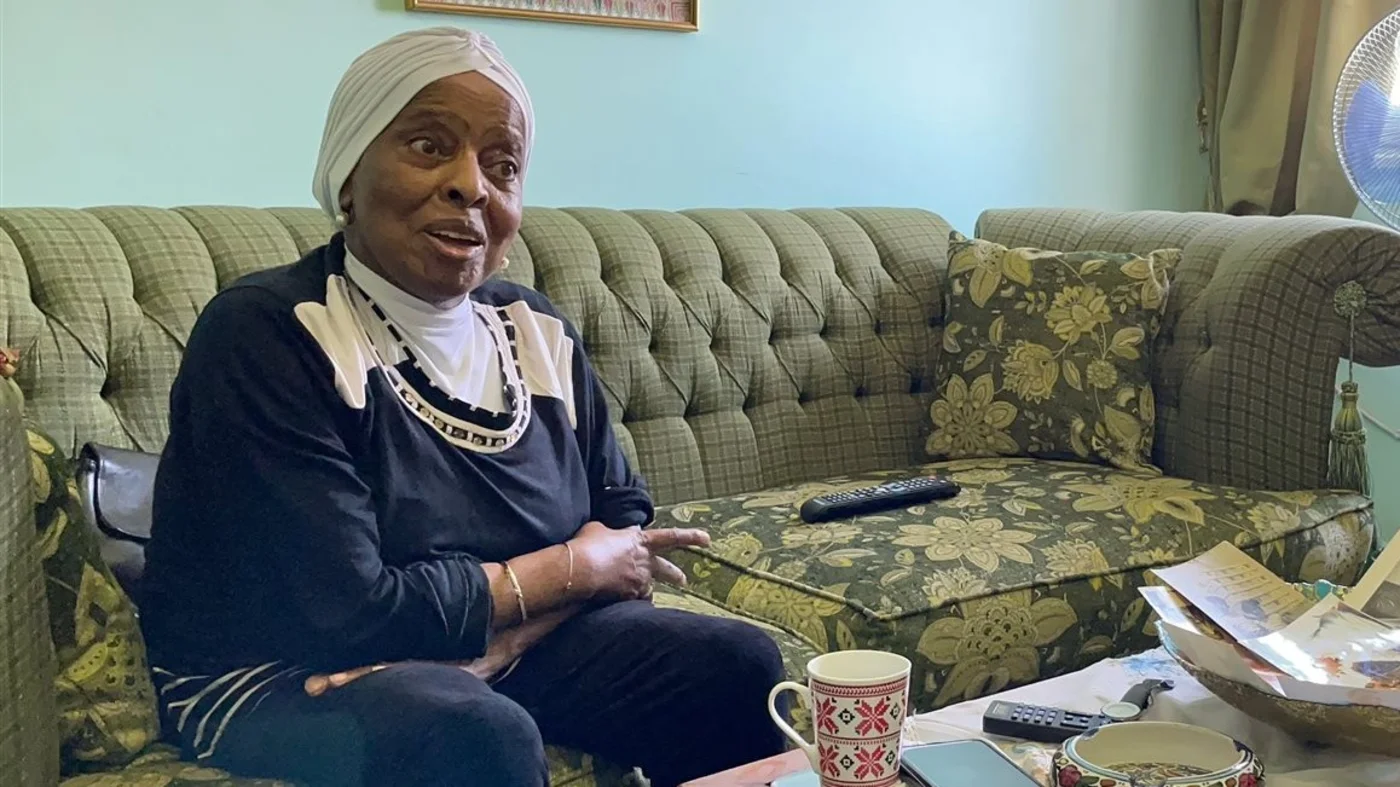
Fatima Bernawi: The First Palestinian Female Political Prisoner and a Symbol of Resistance
History often overlooks the contributions of women in liberation struggles. Palestinian history is rich, embedded with the sacrifices and resilience of women who fought for justice. Among them, Fatima Bernawi (1942–2022) stands out as the first Palestinian woman to be arrested by Israel for political resistance. Her life was defined by her unwavering commitment to the Palestinian cause—first as an activist and fighter, then as a political prisoner, and later as a leader within the Palestinian police force. This piece is a tribute to her.
Bernawi’s story is one of defiance, endurance, and leadership. She endured imprisonment and exile but never abandoned the struggle for Palestinian liberation. At a time when Palestinian women were often relegated to the margins of political activism, she proved that they could play an active role in shaping the resistance movement.
Born in 1942 in Jerusalem, Fatima Bernawi grew up in a politically charged environment. Her father was Palestinian, and her mother Nigerian, making her experience of identity unique within Palestinian society. The Nakba of 1948 [1] (“the catastrophe”) was the defining event of her early years. During this period, over 750,000 Palestinians were forcibly displaced from their homes as Israel was established. Like many Palestinian families, Bernawi experienced loss, exile, and dispossession. This instilled in her a profound sense of injustice and an early awareness of the need for resistance.
As a young woman, she became involved with Fatah, the leading Palestinian liberation movement founded by Yasser Arafat in the late 1950s. Unlike many of her contemporaries, who were limited to supporting roles, Bernawi took an active role in political and military resistance.
In 1967, following Israel’s occupation of the West Bank, Gaza, and East Jerusalem, the Palestinian resistance intensified. That same year, Fatima Bernawi attempted to attack the Zion Cinema in Jerusalem, targeting Israeli military personnel who frequented the site. Israeli authorities arrested her shortly after. Following harsh interrogations, she was sentenced to life in prison, making her the first Palestinian woman to be imprisoned for armed resistance.
Her imprisonment was meant to break her spirit, but it had the opposite effect. Bernawi became a symbol of resistance, inspiring other Palestinian women to join the struggle. She endured ten years in prison, facing brutal conditions, yet she never expressed regret for her actions. Instead, she continued to empower and educate fellow prisoners, turning her incarceration into a site of political resilience.
In 1977, after a decade behind bars, she was released in a prisoner exchange deal between Israel and the Palestine Liberation Organization (PLO). However, her exile did not end her commitment to the Palestinian cause. After her release, Bernawi moved to Lebanon, where she continued working with Fatah and the PLO. This period was crucial, as Palestinian factions were engaged in armed struggle against Israeli occupation and navigating the complexities of exile politics. During this time, she focused on supporting female political prisoners, ensuring that their sacrifices were acknowledged. She documented their stories, advocated for their rights, and worked to integrate more women into the resistance movement.
Her activism saw women’s empowerment as a critical part of Palestinian liberation. She worked to challenge societal expectations and demonstrate that Palestinian women were not just victims of conflict but active participants in shaping their future.
With the signing of the Oslo Accords in 1993, a new political landscape emerged in Palestine. While controversial, these agreements allowed for the creation of the Palestinian Authority (PA) in parts of the West Bank and Gaza. Bernawi returned to Gaza in the 1990s and was appointed the first female director of the Palestinian Police Force. This was a groundbreaking moment—not just for her, but for Palestinian women in governance and security.
Her role signified a shift in traditional gender roles, proving that Palestinian women could lead in fields typically dominated by men. She focused on training female officers, believing that women should play an active role in law enforcement and public security. Even in her later years, Bernawi remained an outspoken advocate for Palestinian rights. She attended conferences, participated in political discussions, and remained deeply involved in the struggle for justice.
Fatima Bernawi passed away in November 2022, leaving behind a legacy of resistance, resilience, and leadership. The Palestinian Authority and Fatah recognized her as a national hero, acknowledging her lifelong contributions to the Palestinian struggle. Her story is significant not only because of her personal sacrifices but because it represents the broader role of Palestinian women in resistance. At a time when female fighters and political leaders were rare, she broke barriers and inspired generations of women to actively participate in the fight for justice. Today, her legacy serves as a reminder that Palestinian women have always been at the forefront of the struggle, whether through armed resistance, political activism, or community leadership.
Remembering Fatima Bernawi means remembering the thousands of Palestinian women who have fought, suffered, and sacrificed for their homeland. Her story is not just about the struggle for liberation but about defiance in the face of oppression, the resilience of women in times of war, and the unwavering commitment to justice. As Palestine continues to resist occupation, her life stands as a powerful symbol of courage, sacrifice, and the enduring spirit of Palestinian women.
Footnotes:
[1] https://www.un.org/unispal/about-the-nakba/
References:
- The first picture is of Fatima Barnawi, a veteran Palestinian prisoner and policewoman, talking during an interview in her home in Cairo (Courtesy: Ahmad Saad/Albawaba newspaper) https://www.middleeasteye.net/news/palestine-fatima-barnawi-women-police-prisoner-dies
- “Fatima Bernawi, Palestinian Resistance Icon, Passes Away,” Al Jazeera, 2022.
- “The Story of Fatima Bernawi: The First Palestinian Female Prisoner,” Middle East Monitor, 2022.
- Sayigh, Rosemary. Palestinian Women: Narrative Histories and Gendered Memory. Zed Books, 2007.
- Khalidi, Rashid. The Hundred Years’ War on Palestine. Metropolitan Books, 2020.
ABOUT THE AUTHOR:

The author of this article is a Palestinian woman



